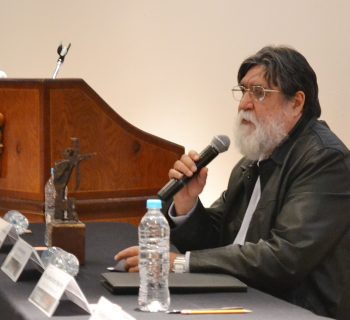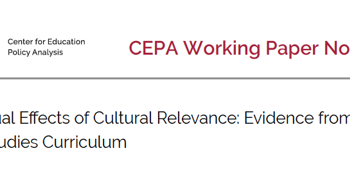By: Larry Christian (Op-Ed), San Diego Tribune – March 11, 2021
The State Board of Education will soon consider new recommendations for creating an ethnic studies model curriculum for California’s K-12 schools. The process started well with the appointment of an advisory committee of educators experienced in ethnic studies, curriculum development and classroom teaching. The committee developed a thorough draft that was well-received by ethnic studies practitioners.
Then came the public comments. There was a torrent of criticism, including accusations of “political correctness” and bias, and complaints that some ethnic groups were either improperly omitted or improperly included. The schedule for adoption was put off and the California Board of Education’s Instructional Quality Commission was charged with developing a new draft.
The new draft changed the focus of the model curriculum from a holistic approach to ethnic studies to a multiculturalism that recognizes the experiences and dignity of all groups but without integrating them into a single discipline.
Why does this matter?
Modern ethnic studies began with students at San Francisco State College and UC Berkeley in 1968 and 1969. Inspired by the wave of national movements for independence and self-determination sweeping Asia, Africa and Latin America and fed up with an academia that gave scant attention to the dispossessed, colonized, enslaved and marginalized, Black, Chicano/a, Asian and Native American students formed coalitions called Third World Liberation Fronts.
They demanded new programs in which the previously marginalized could determine for themselves the features of study of their own histories and experiences. After bitter student strikes, the first ethnic studies programs were established. Since then, the ethnic studies discipline has developed, reflecting the influences of successive waves of immigration.
The original draft of the ethnic studies model curriculum, true to these roots, placed ethnic studies in an understanding of racism and colonialism and of the efforts to overcome them. It provided a framework for students to grow from that understanding to a vision of societal hope and healing. It did so through course outlines and sample lessons offering a general overview of ethnic studies and detailed examinations of the four traditional groupings of the ethnic studies discipline — African American, Chicana/o/x and Latina/o/x, Native American, and Asian American and Pacific Islander studies.
The multiculturalism embodied in the new recommendations now being offered by the California Department of Education references the roots of ethnic studies. But it eliminates the content-rich course outlines and sample lessons from the original ethnic studies model curriculum draft that were prepared by experienced educators. Instead, it offers general guidance for a theme-based approach to ethnic studies supplemented by a menu of 33 lesson plans on various topics. Most of the 33 plans were submitted by members of the public who were knowledgeable in their specific areas but were not experienced in the discipline of ethnic studies.
They represent attempts to examine the experiences of a wide range of ethnic groups in the U.S., but they do so in a compartmentalized way. They avoid connecting those experiences to the systems of racism and colonialism and to the efforts to free themselves from the effects of those systems. These connections are fundamental to what is regarded as the anti-racist, decolonial and liberatory essence of ethnic studies, and they are essential to students’ understanding of their own history.
Why did the Department of Education make the change?
Several groups felt that they were not properly represented in the draft curriculum. Sikh, Armenian and Jewish groups, for example, thought that their experiences should be included in the course outlines and sample lessons. But more fundamental was that pro-Israel forces objected to Arab American studies being included in the curriculum in any substantive way.
The Department of Education addressed these criticisms by replacing the content-rich course outlines and sample lessons included in the original draft with theme-based sample course outlines and a menu of lesson plans that avoid any mention of Arab American identity.
Unfortunately, the Department of Education accommodated complaining groups by sacrificing the essential content of ethnic studies in a way that compromises its value for all ethnic groups. Worse, it took the very definition of ethnic studies away from those whom the ethnic studies discipline was established to serve and turned it over to the same “systems of oppression” that led to the student strikes for ethnic studies programs to start with.
By: Larry Christian (Op-Ed), San Diego Tribune – March 11, 2021






